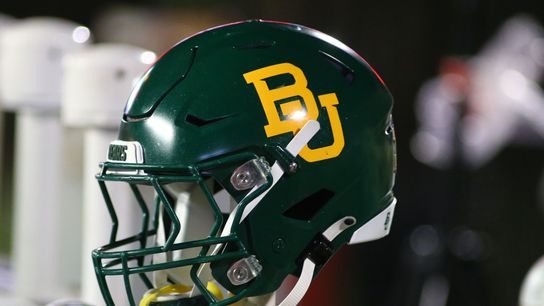The NCAA announced Wednesday morning it would, more than five years later, hand down punishments for the so-called "Art Briles/Baylor football sexual assault scandal." The end result, announced hours later, will make absolutely nobody happy.
Baylor is being punished, but not at all for the alleged rape culture within the football program. That's because, in the NCAA's own words, it doesn't have the power to do so.
"Baylor admitted to moral and ethical failings in its handling of sexual and interpersonal violence on campus but argued those failings, however egregious, did not constitute violations of NCAA rules. Ultimately, and with tremendous reluctance, this panel agrees," the NCAA Division I panel on infractions said in a statement.
Similar to how North Carolina skated on charges that it offered no-show athletes to classes by successfully arguing that giving student-athletes a fraudulent education isn't an impermissible benefit if UNC also provided fraudulent educations to non-athletes, the total lack of structure and accountability within Baylor University allowed Baylor football to escape punishment here.
The panel found that those instances of non-reporting did not constitute impermissible benefits to football student-athletes because of a campus-wide culture of nonreporting. That culture was driven by the school's broader failure to prioritize Title IX implementation, creating an environment in which faculty and staff did not know and/or understand their obligations to report allegations of sexual or interpersonal violence. Because the culture of non-reporting was not limited to cases involving student-athletes, the panel could not find that these instances resulted in impermissible benefits.
So, why is Baylor being punished at all then?
For having too many women among its football recruiting student group, the Bruins. For playing a player who cheated on a quiz.
The panel found one NCAA violation occurred within the student conduct process. A student-athlete was suspended due to a plagiarism concern. He submitted an appeal to the president, who overturned the student-athlete's suspension but required as a condition of relief that the student-athlete be subjected to an academic performance plan requiring 100% academic honesty.
A couple of months later, an academic advisor notified football and academic staff members that the student-athlete had cheated on an in-class quiz. However, the incident was not reported to the president as a failure to meet the terms of the student-athlete's reinstatement. As a result, the panel found that Baylor committed a Level II violation when the student-athlete was provided with an impermissible benefit.
The panel found one NCAA violation occurred within the student conduct process. A student-athlete was suspended due to a plagiarism concern. He submitted an appeal to the president, who overturned the student-athlete's suspension but required as a condition of relief that the student-athlete be subjected to an academic performance plan requiring 100% academic honesty.
A couple of months later, an academic advisor notified football and academic staff members that the student-athlete had cheated on an in-class quiz. However, the incident was not reported to the president as a failure to meet the terms of the student-athlete's reinstatement. As a result, the panel found that Baylor committed a Level II violation when the student-athlete was provided with an impermissible benefit.
The resulting punishments from those actions, along with actions by a former DFO who no longer works in college football, are thus:
- Four years of probation.
- A $5,000 fine.
- A reduction to 30 football official visits during the 2021-22 academic year.
- A three-week ban on unofficial visits in football during the 2021-22 academic year.
- A two-week ban on football recruiting communication during the 2021-22 academic year.
- A reduction of football evaluation days by three during fall 2021 and by 10 during spring 2022.
- A five-year show-cause order for the former assistant director of football operations. During that period, any NCAA member school employing him must restrict him from any athletically related duties unless it shows cause why the restrictions should not apply.
- A vacation of all records in which student-athletes competed while ineligible. The university must provide a written report containing the contests impacted to the NCAA media coordination and statistics staff within 14 days of the public release of the decision.
What we're left is a system that punishes a program for cheating but not for failure to report multiple alleged rapes, only the people who committed such actions -- admitted and alleged -- are long gone, therefore meaning the NCAA is levying punishments upon people who had nothing at all do with the violations, they just happen to wear the same colors.
As it happens, Wednesday's decision comes as the NCAA is preparing for a Constitutional Convention, where the organization's best and brightest minds will get in a room and decide what, exactly, the NCAA is supposed to be moving forward.
The NCAA supposedly exists to perform two functions: running championships and enforcing the rules the schools themselves write. Except we've learned lately that they're not even good at that. The Division I women's basketball tournament was a total fiasco that, we recently learned, doesn't generate nearly as much money as it's worth. And now we get this decision, where Baylor acknowledges "moral and ethical failings" of the most serious nature but is punished for a player cheating on a quiz -- and the people punished had nothing at all do with the crime.
What, exactly, is worth preserving here?
